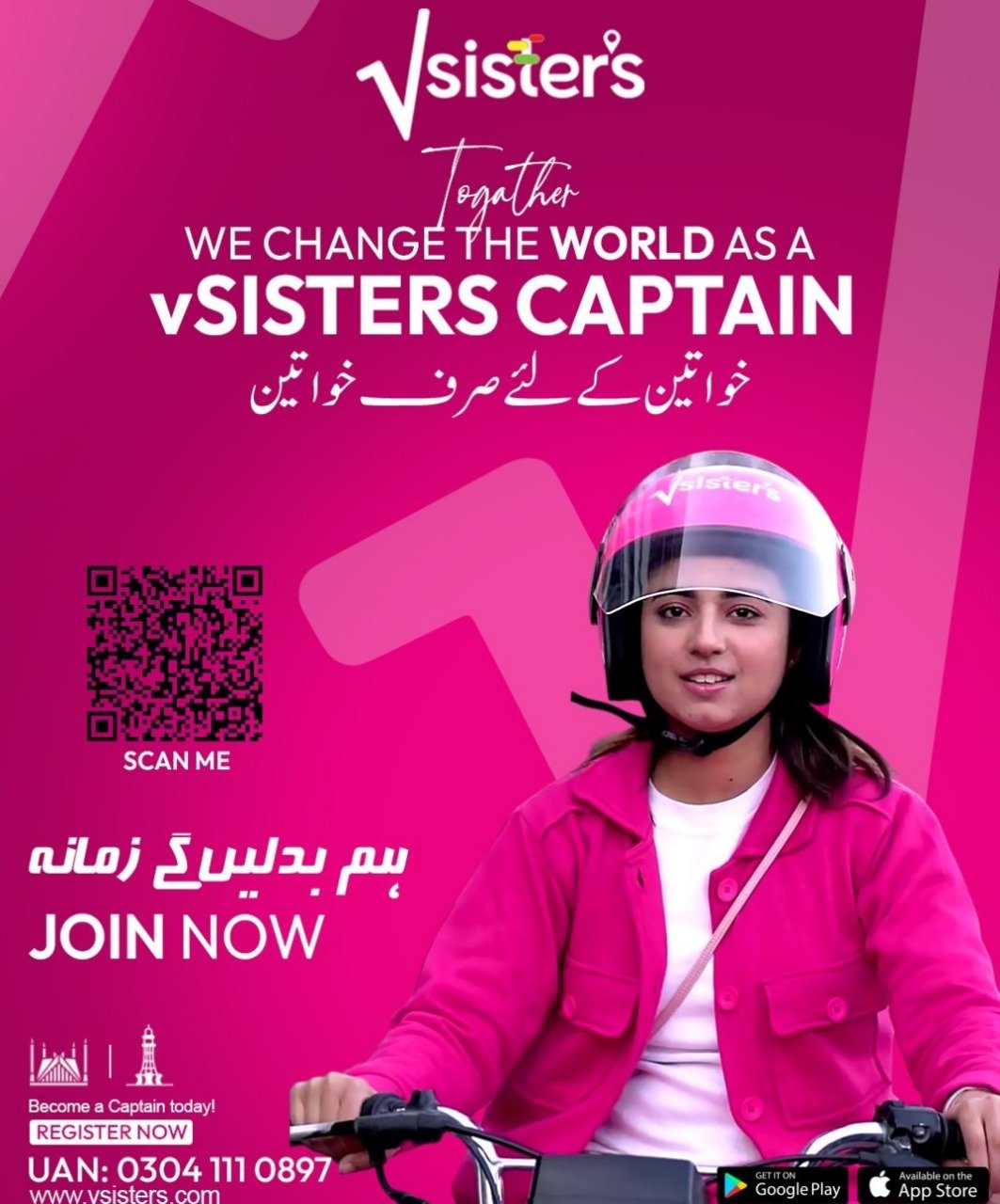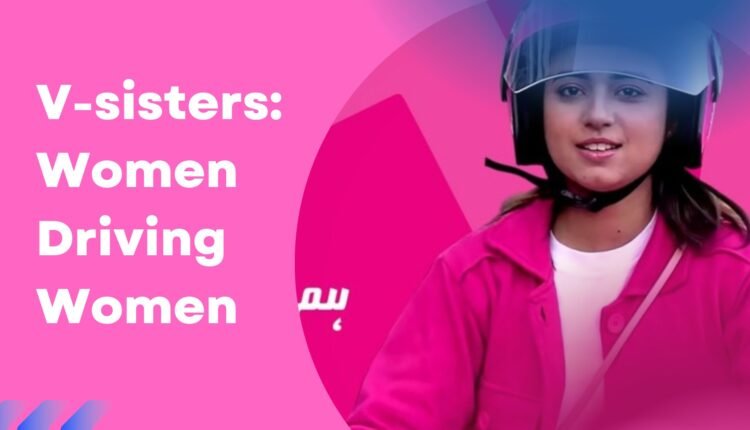V-sisters: Women Driving Women
V-Sisters: Women Driving Women highlights a safe, empowering transport service where women support women. This initiative not only ensures secure travel but also promotes independence, confidence, and opportunities for female drivers and passengers alike
In Pakistan, commuting has always been a challenge for women, especially in urban centers. Limited public transport options, coupled with the constant fear of harassment, make even a simple journey feel overwhelming. According to UN Women and the Aurat Foundation, nearly 90% of women face harassment during commutes, highlighting how unsafe the system has become.
Also Read: Journalist in PakistanWomen in Pakistan face serious challenges in public transportation, where harassment, safety concerns, and poor infrastructure deeply affect their mobility. Studies show that up to 90% of women commuters in Lahore experience sexual harassment on buses and over 80% at bus stops, while in Rawalpindi, nearly 82% report facing harassment regularly from passengers, drivers, and bus staff. These experiences directly impact women’s travel behavior, leading them to avoid certain routes, change travel times, or even skip trips altogether. Infrastructure gaps like overcrowding, poor lighting, lack of route information, and unsafe facilities further restrict women’s movement, with 99% avoiding night travel due to fear.
Encouragingly, safer models such as Peshawar’s Bus Rapid Transit (BRT), which introduced women-only sections, CCTV surveillance, and security staff, boosted female ridership from 2% to 30%, proving that inclusive design can create real change. However, awareness remains low: over 94% of women are unaware of Section 509 of the Penal Code, which protects against harassment, and most do not know about emergency helplines or reporting apps. These realities show that women’s transportation challenges in Pakistan are not just about mobility but about dignity, safety, and equal access to public life.
A Breath of Fresh Air: The Emergence of VSisters
Against this backdrop, the launch of VSisters, Pakistan’s first women-only ride-hailing service, feels like a long-awaited solution. Introduced in June this year, the platform is already operating in Islamabad, Rawalpindi, and Lahore. What makes it unique is simple yet powerful: both the riders and captains are women.
This initiative provides women with more than transportation, it offers agency, safety, and dignity. For students, professionals, and homemakers alike, VSisters represents freedom of movement without the fear of harassment that shadows most commutes.
Also Check: Why and When : AJK ProtestsThe Impact of VSisters
Currently, VSisters has over 460 active female captains and has completed more than 3,500 rides. Expansion plans into Karachi, Faisalabad, and Multan are already underway, with a long-term vision to go nationwide.
What makes this model particularly transformative is its dual impact: not only does it make passengers feel safe, but it also creates economic opportunities for women drivers. For many, driving has become a source of financial independence, allowing them to support their families, pay bills, and reclaim personal agency.
Stories of Resilience and Empowerment
The journeys of these female captains are deeply inspiring. From single mothers finding stability to young women training others on bikes and app usage, VSisters is creating ripples of empowerment. Parents feel more secure sending their daughters with women drivers, while passengers report a sense of comfort and ease they have never experienced in mainstream ride-hailing apps.
Read More: The Rise of E-commerce in Pakistan: Trends, Challenges, and Future ProspectsChallenges That Need Addressing
Despite the positive impact, hurdles remain. Female captains often earn less compared to drivers on other platforms. Digital safety concerns are also pressing, as Pakistan lacks strong data protection laws. Ensuring privacy, app reliability, and sustainable income structures will be crucial for VSisters to thrive long-term.
A Turning Point for Women’s Mobility
VSisters represents more than a ride hailing service; it is a turning point. It shows how innovative, community driven solutions can address deep rooted issues like harassment, safety, and economic exclusion.
For too long, women in Pakistan have altered their routes, schedules, and choices out of fear. With initiatives like VSisters, they are reclaiming mobility, dignity, and independence. It is not just about moving women from one point to another, it is about moving society forward, one safe ride at a time.


Comments are closed, but trackbacks and pingbacks are open.